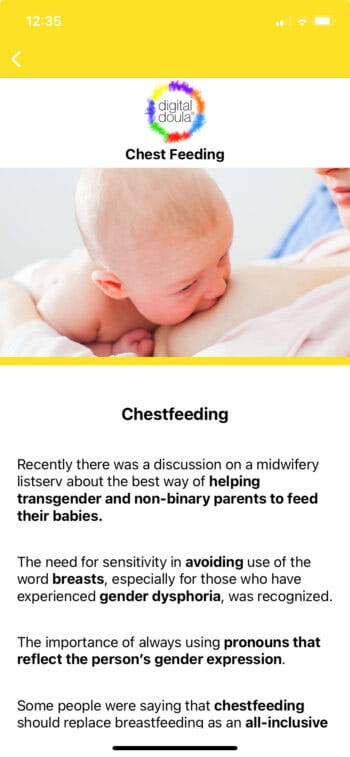
Reflections on breastfeeding.
These days more and more women are choosing to breastfeed, sometimes under pressure to do the right thing, but often for the pleasure and benefits that it provides. The vast majority of women born during the baby boom generation were not breastfed. This generation of women, including me, didn’t have the personal cellular memory for this experience which would have helped in choosing this for our children. Although we grew up fine despite this, the social consequences of this are shown in high divorce rates, single parent families, child abuse, sexual deviance, the increasing incidence of racism, and disconnection. This same generation was the one to re-embrace breastfeeding again, and I successfully breastfed four children, and the last two were breastfed for two years each. The conditions mentioned reflect a society which has become alienated and isolated in its ability to express love and intimacy. The seeds of intimacy are sown during skin to skin contact, which has recently become the buzz words in maternity wards advocating for this contact right after birth. This body contact is our introduction to physical closeness which develops into a strong ability to have close relationships later in life. This language of the skin translates into increased abilities to communicate with others, personally and intimately. I have always believed that if all women breastfed and allowed themselves to relax into this experience of nurturing, our children as a society could then reverse the trends that we see all too often in the headlines. I know it cannot solve all the problems in society.
Expanding intimacy
Once the seeds of intimacy are sown it is important to tend to these fragile plants as they grow into a stronger connectedness with others. Intimacy is a growing edge for most people, and with a qualified experience of it people aren’t comfortable being intimate with others. It is hard to share the deepest parts of ourselves with others and it can feel much easier just to stay inside and not reach out. All the stimulation that is provided through toys and equipment, along with programs for babies, do not offer the kind of essential touching stimulation that babies receive through breastfeeding. The rest is compensation. The social trend that changed the family structure from an extended family, when Grandma and other relatives were around, to the nuclear family, with reduced ties to other people, can have isolating effects on new mothers. Some women also find it difficult to be with their mothers in a nonthreatening and life-supporting way because they lack the intimate connection that allows them to be vulnerable with their mothers. I was one of them. My mother was a product of her generation where there was a general state of inhibition that impeded that generation’s emotional development. Even when Grandma was available to help out, some of us would not avail ourselves of this option for various reasons.
Nurturing the seeds
To know nurturing as a close physical experience of touch is to truly fulfill the essence of mothering. You don’t have to become an ‘attachment parent’ to be physically close to your baby. I believe too many mothers today are approaching the process of mothering with a black or white attitude. It is not an either/or experience, it’s a both/and one. You need to feel free to pick and choose the bits that resonate with you. Mothering can provide new opportunities to learn the lessons of service to others, which is also a planetary issue. Nurturing the mother allows the partner to access some of the feminine qualities within, as we are all a composite of both masculine and feminine characteristics. Because society emphasizes an oversized masculinity in men, this inhibits his expression of sensitivity. Although some fathers feel left out by breastfeeding, they could instead appreciate the opportunity that nursing gives the mother to be more receptive, both as a mother and a lover. This makes the circle of unity more complete.
The next generation of peacemakers
Children who experience skin to skin contact in an accepting and natural atmosphere grow up more comfortable with their bodies, more comfortable with others and more curious about the natural workings of their bodies. This begins to reverse the ignorance that generations of people have grown up with. These children will be raised to be more naturally cooperative and concerned for others and to have a more whole and healthy perception of themselves. They bring a whole person into relationship with others, rather than expecting others to fill in the spaces that are undeveloped to make them more whole. Intimacy, or the sharing of oneself with others in a profound personal sense, is a deeper, more satisfying experience when both individuals move into it as whole human beings. The choice to breastfeed has many long range benefits which enrich individuals and serve the betterment of humanity, even if you are planning to go back to work. The nursing couple is a mutually beneficial relationship. Both mother and baby benefit by the experience on the physical, emotional and relational levels, and this interdependence is undeniable. I suspect this has something to do with why some fathers feel left out. There are many ways that a father/partner can engage intimately with the baby that enhance the connection between them, including baby wearing, bath time, and heart-to-heart napping. In our household, my children’s father was the bath master! It takes the closeness of breastfeeding and expands it to include both parents. Those seeds become beanstalks when this happens!


I hope you have enjoyed this post. Use the search bar below to find other interesting content on this site.
Post Categories







Hi Diane, I very much enjoyed your post above about intimacy, and will share it with others. So important!
Thanks, Kerry. I agree with you about the importance of highlighting this aspect of breastfeeding. Beanstalks, with gentle giants in the future! (My 6’5″ son was called a gentle giant when he was young!)
Thanks for the article. In Australia, the importance of skin to skin contact immediately following birth, has been well recognised for many years, and is now a ‘given’. The first seeds of intimacy begin at conception, develop throughout pregnancy and culminate at birth and breastfeeding. We teach this through our Inside Birth program, using deep hypnosis. It’s great that we are all getting the message out about the importance of breastfeeding. Thanks again and keep up the good work. Susan
Thanks, Susan. Of course intimacy begins during pregnancy, but that doesn’t always translate to intimacy after birth. I wouldn’t say it culminates in breastfeeding – that is the beginning of interaction that grows over the years. Skin to skin gets a lot of buzz here in the UK too. I’ve always been an advocate of breastfeeding, and the intimacy of it is the message of this blog.
Yes! So many hypnobirthing techniques are now becoming mainstream practices within the global community. Much of this is in part due to those courageous women who have gone before such as Marie Mongan who celebrates the 25th Anniversary of her hypnobirthing international program this year. Also the Aussie family whose practice of skin- to- skin with their premature baby boy considered to have ‘passed’ but revived with the practice now named ‘Kangeroo Mother Care’. It’s great to read well written articles such as yours Diane and warms my heart that professionals such as you share so willingly for the good of our planet ♡♡♡
Thanks for your lovely compliment, Helen. I remember the premature baby that was brought back to life by the mother holding him skin to skin. Which hypnobirthing techniques are you referring to? Although I became a birth educator in 1978, and created my own methodology for empowered birth, I did the training in Mongan Hypnobirthing in 2010 out of curiosity. I don’t teach it, but I found it interesting because it synthesizes the work I do as a birth professional and as a hypnotherapist.
Hi Diane, This is a lovely article about the connection between breastfeeding (skin on skin contact) and intimacy and one that is very important for parents to understand. I believe that intimacy begins in the womb. The concept of being wholly one with another (mother) is our first contact with intimacy. It is what happens after that, that can enhance or destroy intimacy ie birth, separation, not being breastfed, lack of skin on skin contact, sleeping alone etc. The continuum of intimacy from the womb to our natural desire for independence is a vital step in the development of each individual and subsequently the evolution of humans. Congratulations on a great article. Regards Lynne
Thanks, Lynne. I love the name of your website! As I replied in another message, yes intimacy begins in the womb, and I’m in agreement with you about how that can be interfered with after birth. When we nurture and practice intimacy with our children, they are more likely to grow into whole human beings who feel empowered to go out into the world with more empathy and compassion for others. Those are the peacemakers of the world, and in light of the events of this week in Paris, we need more peacemakers!
Thanks Diane, My website Soul Birthing is exactly about that, healing the barriers we create to intimacy in our earliest moments from conception, gestation, birth and early childhood.I created these programs in conjunction with Binnie A Dansby. Once we re-source our beliefs about this primal time, we create freedom to explore intimacy and love with a new perspective. Would really appreciate you checking out the site and giving me feedback and if you like what you see to like and share with your network. I created the programs about a year ago and have been working quietly with a few clients to assess their impact. The results have been impressive and both Binnie and I are ready to launch this to a wider audience.
I will have a look once I’m finished with a deadline I’m approaching this week. Let me give it the attention it deserves.